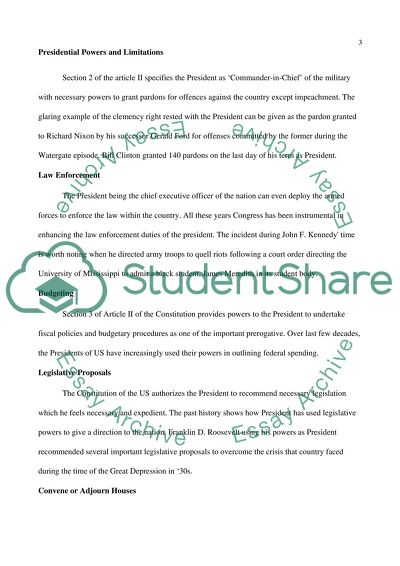Cite this document
(“Presidental Powers and Limitations Term Paper Example | Topics and Well Written Essays - 1750 words”, n.d.)
Presidental Powers and Limitations Term Paper Example | Topics and Well Written Essays - 1750 words. Retrieved from https://studentshare.org/history/1446005-presidental-powers-and-limitations
Presidental Powers and Limitations Term Paper Example | Topics and Well Written Essays - 1750 words. Retrieved from https://studentshare.org/history/1446005-presidental-powers-and-limitations
(Presidental Powers and Limitations Term Paper Example | Topics and Well Written Essays - 1750 Words)
Presidental Powers and Limitations Term Paper Example | Topics and Well Written Essays - 1750 Words. https://studentshare.org/history/1446005-presidental-powers-and-limitations.
Presidental Powers and Limitations Term Paper Example | Topics and Well Written Essays - 1750 Words. https://studentshare.org/history/1446005-presidental-powers-and-limitations.
“Presidental Powers and Limitations Term Paper Example | Topics and Well Written Essays - 1750 Words”, n.d. https://studentshare.org/history/1446005-presidental-powers-and-limitations.


